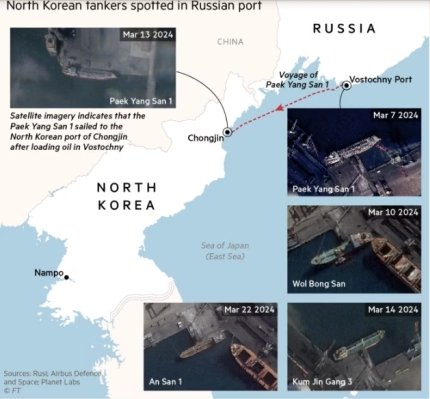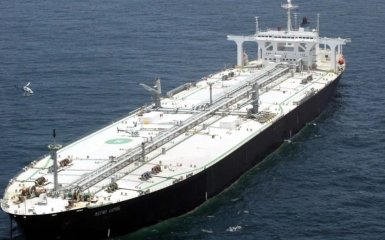Russia has started supplying oil directly to North Korea in defiance of UN sanctions. This month, at least five North Korean tankers left with oil products from the port of Vostochnyi in the Far East of the Russian Federation.
What is known about the supply of Russian oil to North Korea
The sea shipments from Russia, which began on March 7, are the first documented since the UN Security Council — with Moscow's approval — imposed severe restrictions on oil supplies in 2017 in response to North Korea's nuclear weapons tests.
These oil shipments are a full-scale assault on the sanctions regime, which is now on the verge of collapse, said former UN coordinator of the group Hugh Griffiths.
All of the North Korean-flagged vessels, which are classified as oil tankers, called at the same Russian oil company berth in the Eastern Port, where they apparently loaded.
Satellite images confirmed that the two ships then left the Eastern port for the North Korean port of Chongjin, where they likely unloaded.

When the deliveries started
The shipments began after North Korea began shipping thousands of containers of ammunition to Russia in August last year. The eastern port has also been used as a transshipment point for Russian vessels believed to be involved in the arms trade between the countries.
What we are seeing now is a clear arms-for-oil barter arrangement that openly violates the sanctions that Vladimir Putin personally signed, Griffiths said.
All five North Korean ships entered the East Port with their transponders turned off. One of these vessels, the Paek Yang San 1, was identified by the UN in 2018 as being involved in illegal oil shipments.
According to analysts, the recorded supply of oil from the Eastern port may amount to 125 thousand barrels of oil products, a quarter of the allowed annual quota.
More on the topic
- Category
- Economics
- Publication date
- Додати до обраного
- Category
- Events
- Publication date
- Додати до обраного
- Category
- Economics
- Publication date
- Додати до обраного




